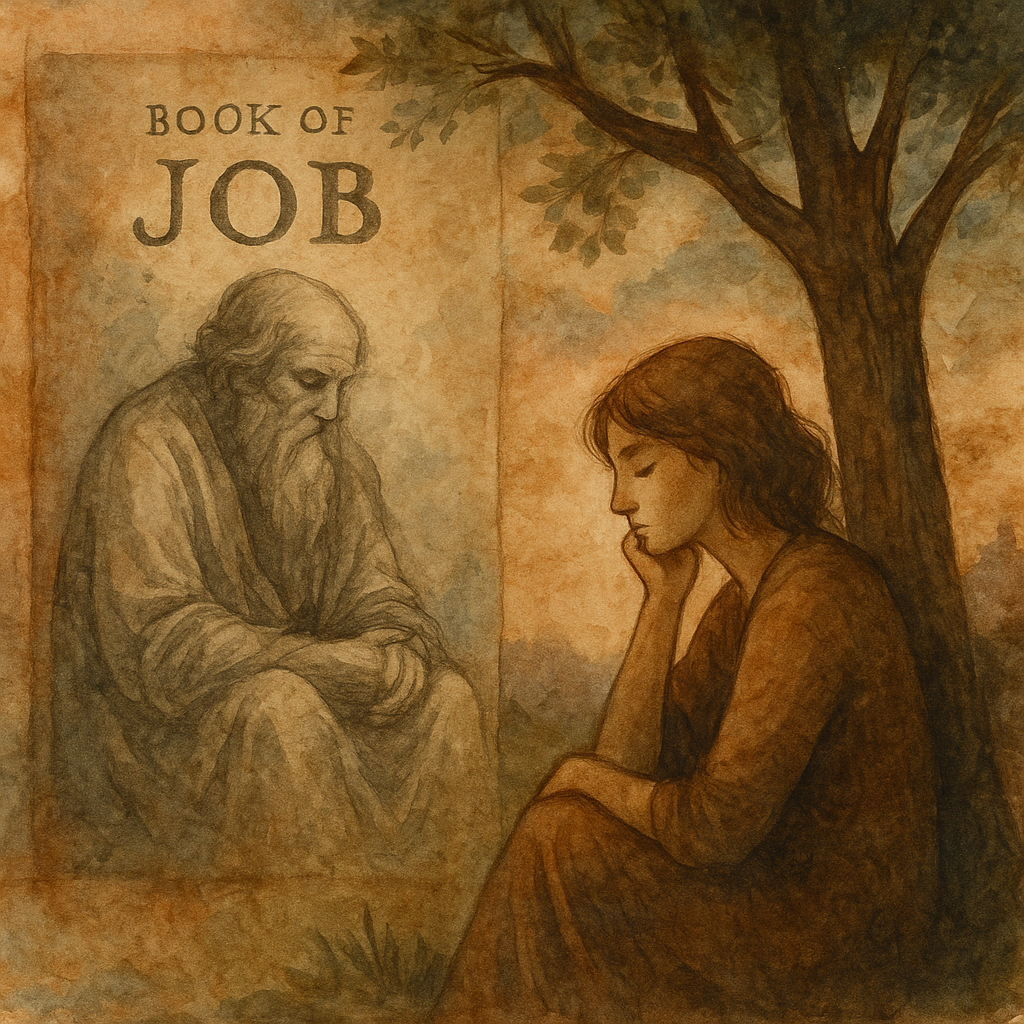What Ancient Wisdom Can Teach Us About Purpose and Control
We’ve all been sold stories -stories that tell us that if we just follow the steps, believe hard enough, or align with a higher purpose, our lives will unfold beautifully. That success will follow. That transformation is inevitable.
But what if that’s not always true?
The dangers of survivorship bias
In the previous post, I wrote about the dangers of survivorship bias – how self-help formulas often only highlight those who “made it” while erasing the many who followed the same path but didn’t end up with shiny results. And I’ve explored the discomfort I felt during a course when I encountered the idea that aligning with divine support guarantees transformation. It’s a lovely idea – but it doesn’t reflect the full complexity of life as I’ve come to understand it.
Insights from ancient wisdom
More recently, I found myself returning to the Book of Job – an ancient story that feels startlingly relevant in our era of curated success and spiritualized self-improvement.
Job, as you may recall, was a righteous man who lost everything: his wealth, his health, even his children. His friends insisted that he must have done something wrong. That suffering surely meant failure. But Job held his ground. He refused to accept that pain was a sign of guilt or that success was proof of righteousness.
In many ways, the Book of Job is a bold counter-narrative – one that challenges the idea that we’re always in control or that our lives are a reflection of our worthiness. It’s a reminder that bad things happen to good people. That integrity and hardship can coexist. That sometimes, there is no tidy arc or comforting explanation.
I explore this in the video below, where I reflect on how the story of Job speaks to the complexity of life, spiritual surrender, and soul-aligned living.
Is life a meritocracy?
What’s striking to me is how enduring this question is. From ancient wisdom texts to modern personal development, we keep wrestling with the same theme: Is life a meritocracy? Are we blessed because we are good? Or is there a deeper, messier, more mysterious story unfolding?
The version of the divine we encounter in Job is not a cosmic vending machine. It does not reward performance or punish failure in predictable ways. In fact, Job never gets a clear answer. What he receives instead is a kind of awe – a confrontation with the vastness of life and its untameable complexity.
That’s a different kind of spirituality. One that doesn’t promise control but invites surrender. One that doesn’t measure success in outcomes, but in faithfulness – to your values, to your truth, to your soul’s calling.
It’s easy to get pulled into the orbit of “manifestation,” of believing that if you can just align your vibration or intentions, the universe will reward you. And for some, that language might resonate. But for me, it’s always felt too tidy. Too transactional. And the truth is – it doesn’t actually work. At least, not in any consistent or reliable way. Life doesn’t hand out blessings in proportion to how well we visualize or how deeply we believe or what a “good” person we are. I’ve known too many thoughtful, courageous, soul-aligned people whose lives haven’t turned out the way they hoped. Not because they were doing something wrong – but because life doesn’t always follow a neat script.
A loss of faith
And when those promises don’t deliver – when transformation doesn’t arrive “inevitably” – it can leave people not just disappointed but devastated. It can shake their sense of trust in life, in themselves, even in whatever they call God. The subtle message becomes: “You must not have aligned deeply enough. You must not have believed hard enough.” Which, to me, feels like a spiritualized version of the same old meritocracy. And just like Job, people are left sitting in the ashes, trying to make sense of what went wrong – when maybe nothing did.
Honouring reality
The Job story helps me honour the realities that many people face – loss, illness, unexpected twists that no amount of planning or alignment can prevent. It reminds me that the deeper task is not to control life, but to remain true to ourselves within it.
So, when I talk about the future now, I’m not asking: “How can I guarantee success?” I’m asking: How can I live with integrity in the face of uncertainty? How can I build a life I respect – even if it doesn’t go to plan?
That, to me, is a more soulful path.
To ponder
- Have you ever felt disillusioned by promises of transformation or success? How did you navigate that?
- What helps you stay true to yourself when life doesn’t go the way you’d hoped?
- Does the story of Job- or another ancient story – offer you a sense of perspective or comfort?
If this piece resonated with you, you’ll find more like it in the Soulful Living & Inner Growth themed book reviews – gentle reflections on staying true to yourself, navigating uncertainty, and cultivating meaning from the inside out.

